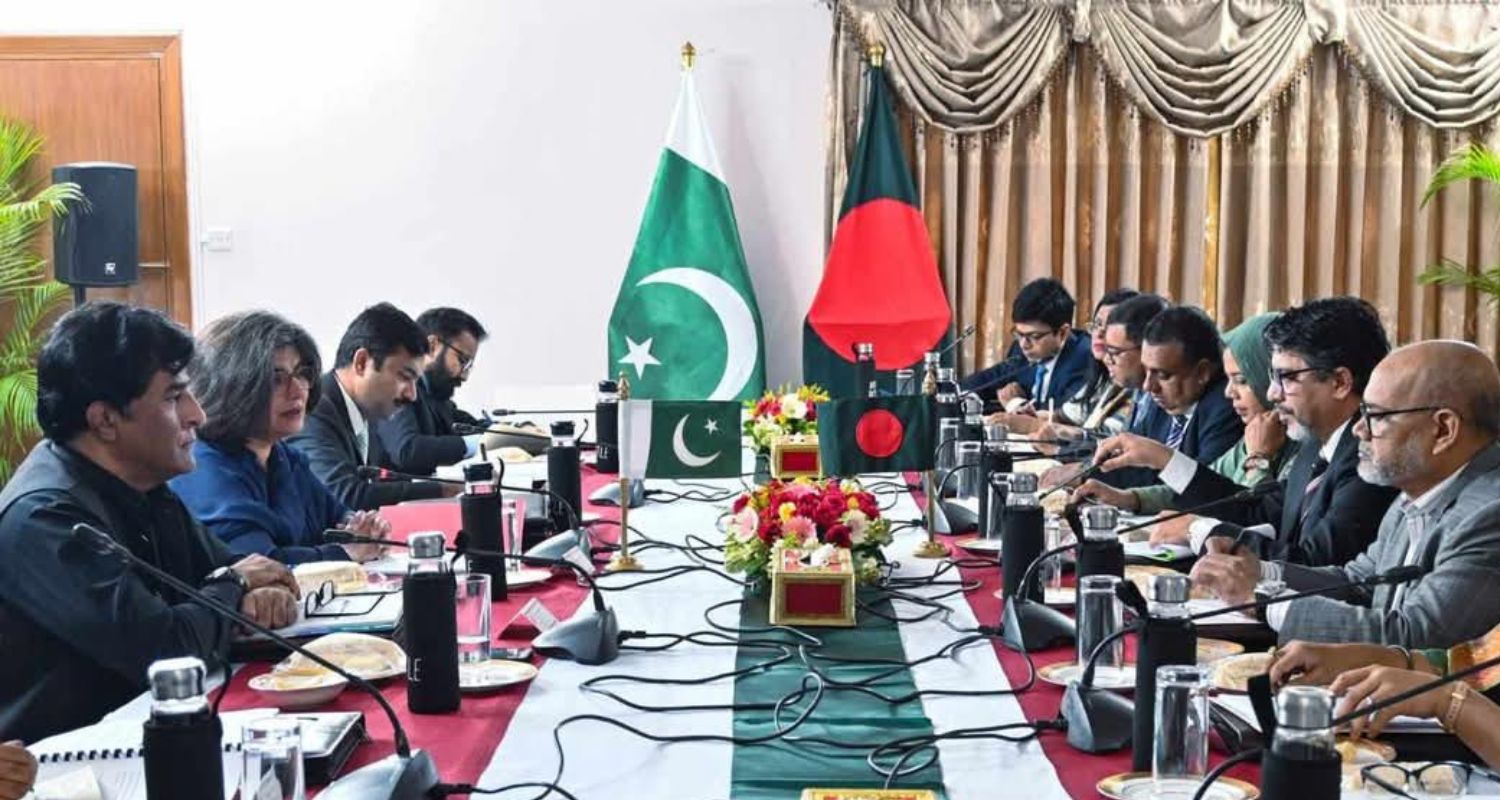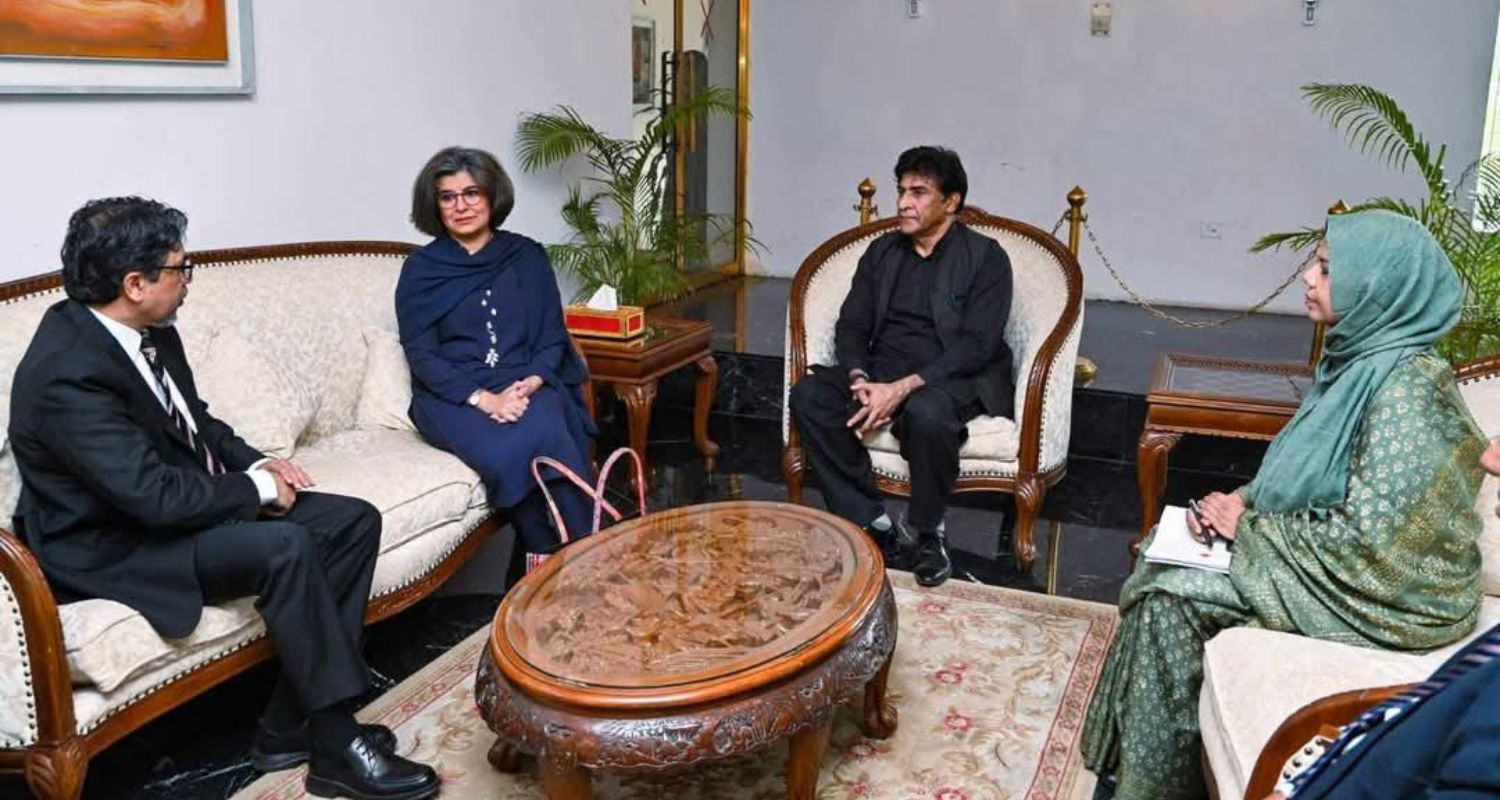In a significant diplomatic development, the foreign secretaries of Bangladesh and Pakistan met for high-level talks on Thursday evening for the first time in nearly 15 years, raising considerable attention in South Asia.
The meeting, held at the prestigious Padma State Guest House in Dhaka, marks a key moment in regional diplomacy and comes at a time when India-Bangladesh relations are showing signs of strain.
The talks, described as Foreign Office Consultations (FOC), were attended by Pakistan’s Foreign Secretary Amna Baloch and her Bangladeshi counterpart, Mohammad Jasimuddin. This marks the first such diplomatic engagement since 2010, signaling a potential shift in South Asian alignments.
The timing of the meeting is particularly sensitive for India, given the evolving dynamics between New Delhi and Dhaka. Once considered a "golden chapter" in regional diplomacy under Prime Ministers Narendra Modi and Sheikh Hasina, the relationship between India and Bangladesh has cooled significantly in recent months.

This shift has occurred against the backdrop of the Awami League's ousting and the rise of an interim administration led by Nobel laureate Mohammad Yunus, who is seen as more open to Chinese and, increasingly, Pakistani overtures.
For Indian intelligence agencies, the meeting between the two foreign secretaries is a cause for concern. The diplomatic revival between Bangladesh and Pakistan is seen as a potential warning sign, particularly in light of recent developments in Bangladesh’s foreign policy.
Bangladesh has softened its stance towards Pakistan in recent months, including lifting the ban on Pakistani students at Dhaka University, easing visa restrictions, and resuming direct flights and cargo ships between the two countries. These actions are being interpreted as a deliberate effort to normalise and potentially enhance bilateral ties beyond mere diplomatic gestures.
India’s Ministry of External Affairs (MEA) has taken note of these developments with increasing unease.
“More concerning for India is the possibility of Pakistani Foreign Minister Ishaq Dar visiting Dhaka in the near future, which would mark the first such visit since 2012. A visit of this nature would not only deepen Pakistan's diplomatic footprint in Bangladesh but also further erode India’s traditional leverage in its immediate neighborhood,” an officer from the MEA remarked.

The broader regional implications of this diplomatic shift are also being closely analysed. Pakistan’s renewed outreach to Bangladesh comes at a time when India is already grappling with growing Chinese influence in South Asia.
“If Pakistan succeeds in regaining its lost influence in Dhaka, possibly with behind-the-scenes support from Beijing, it could lead to a diplomatic triad that isolates India in its own backyard,” the MEA official warned.
India is closely monitoring whether Islamabad is attempting to capitalise on the political transition in Bangladesh to regain its strategic foothold.
The changing tone of Bangladesh’s foreign policy has not gone unnoticed, with Yunus, now serving as the chief advisor to the interim government, leaning toward a more China-centric approach—one that places less importance on traditional ties with India.
This shift in Dhaka’s foreign policy raises concerns for India’s security and its regional standing. Pakistan’s quiet resurgence in Bangladesh, coupled with potential support from China, could disrupt the balance of power in the region and challenge India’s long-standing influence in its immediate neighbourhood.
International relations experts suggest that the meeting at the Padma State Guest House is not just a diplomatic engagement between two nations with a history of tension—it is also an indication that the tectonic plates of South Asian politics are shifting. For New Delhi, this marks the beginning of a more complex and challenging chapter in its neighborhood diplomacy.
Also Read: Secret BNP-Jamaat meet in UK sparks 'alliance' buzz in Dhaka



